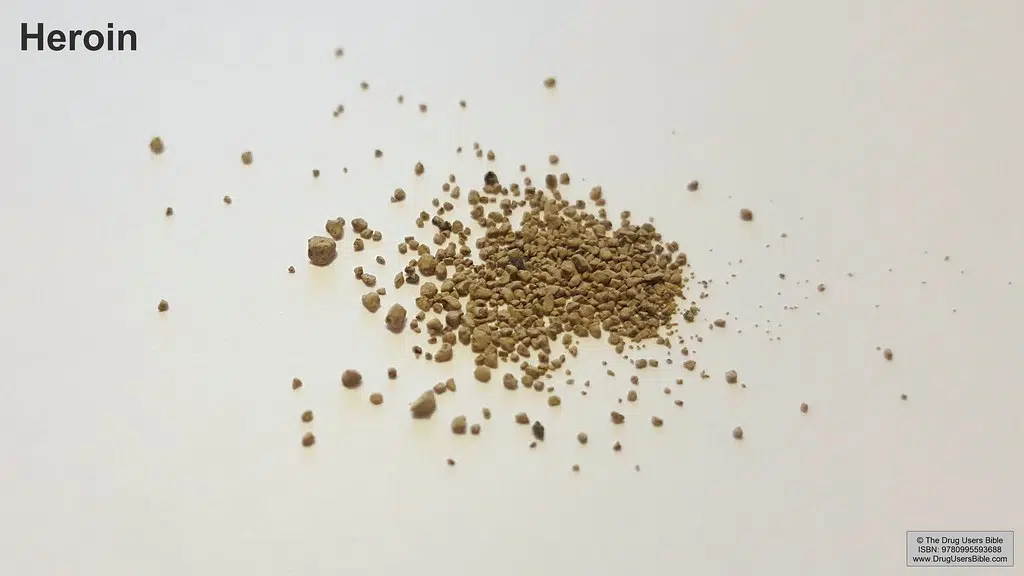Heroin has been found in two Southwestern Nova Scotia counties for the first time in nine years.
This according to a Nova Scotia frontline drug report from the Dept. of Health and Wellness presented this year which states the drug has turned up in police seized powder in both Lunenburg and Yarmouth County this year.
The report notes this is the first time the drug has popped up in these areas since they began tracking it in 2011.
However, local law enforcement and addiction workers in Lunenburg County say they haven’t seen the drug as of yet.
Bridgewater Police deputy chief Danny MacPhee said he doesn’t recall seeing or seizing the drug within the last year, but hearing non-pharmaceutical opioids are re-entering communities doesn’t come as surprising to him.
“Now that the opiate crisis is kind of in the forefront, prescription monitoring has really stepped up in the province,” he said.
“They’ve really limited that over prescription, so it makes sense to me that now that they’ve tightened the opiate availability on the black market, that heroin would filter in.”
MacPhee said they have heard about the drug making its way back through various investigations, however haven’t seen it themselves.
The potential return of heroin is concerning to MacPhee, who said it presents higher risks for users, as many lack of knowledge of what is in the drug when they buy it.
“Its not, you know, made by the pharmacy and then its clean coming to you,” he said.
“So there is always the worry that you don’t know, you know, is there methamphetamine in it, is there cocaine in it, is there fentanyl in it? That’s a huge risk you are taking on as a user.”
The report noted that all three heroin samples from the counties contained unspecified amounts of Fentanyl.
The potential re-introduction of non-pharmaceutical opioids, some of which potentially carrying other deadly substances like Fentanyl, could bring with them other severe risks to users in the area.
“Overdose is a substantial risk,” said Brent Laybolt, who works in addictions services.
“You can definitely die from an opioid overdose, so that’s why we’ve worked so hard to get our naloxone kits out there.
“To me that would be the biggest risk, but there are also the devastating community impacts that can happen when you are in something like an opioid pandemic or when any other use trend that escalates.”
Laybolt is the RN lead for the Mental Health and Addictions Withdrawal Management Acute Care Unit at Fishermen’s Memorial Hospital in Lunenburg. They provide outpatient support and inpatient admission for those seeking recovery assistance, as well as urgent care and crisis support for those struggling with addiction.
Like MacPhee, Laybolt hasn’t seen evidence of heroin use or abuse from a treatment standpoint, and has instead seen a drop in numbers related to opioid abuse since the new prescription regulations were instated.
Statistics also show more people are seeking help to kick addiction, something Laybolt said is due to broader understanding of addiction.
“We’ve also seen a decrease in stigma, which is a huge part of our endeavors in mental health and addictions,” he said.
“The lower the stigma, the quicker people access services and care. So the sooner people see that, regardless of how they got involve with opioids or any other drug, the fact is they are now in the grips of a disease and need to be treated by the people who are trained to do so.”
While the province already institutes harm reduction initiatives such as providing naloxone kits to the community, others such as safe injection sites have been proven to work in the battle against opioid abuse, said Laybolt.
“The evidence is very clear that all harm reduction endeavors end up seeing really good results,” he said.
“If someone safely uses their drug and doesn’t overdose because it was supervised, the chances escalate dramatically of them seeking help and care for recovery. The evidence is clear on the outcomes of that and they are pretty positive overall.”
Laybolt said there are no injection sites in Lunenburg County as of yet, but something similar may be in development in Halifax.
Anyone dealing with or suffering from addiction can find more information on how to access Mental Health and Addictions Services in Nova Scotia by calling 1-855-922-1122 of by clicking here.









